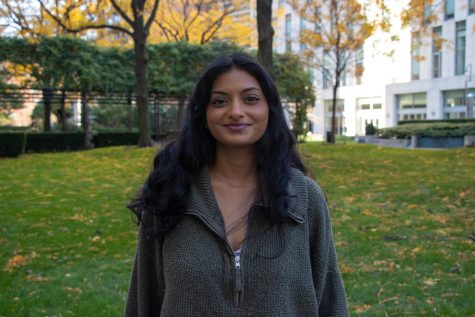As we near graduation, we have started to reflect on the knowledge and experiences we have gained throughout our time at Fordham. Preparing to step into the next chapter of our lives, we find ourselves wondering what could have been improved upon.
Many of the discussions in the classroom, while valuable and insightful, often seem to echo the same perspectives. The academic discourse takes into account historical and structural nuances, which are crucial for understanding complex societal issues.
However, academia is built on disagreement. Scholars in the social sciences routinely present new theories, critique existing paradigms and challenge one another’s viewpoints. So why, in the classroom, does it often feel like we are all on the same page?
One reason might be that Fordham is a socially homogeneous community. Fordham’s undergraduate tuition for the 2024-25 academic year increased by 4% from the previous year. A $62,990 tuition is not something most Americans can afford, meaning that the university typically attracts students from upper class socioeconomic backgrounds. Yet, the demographic data reveals that there might be a different story.
We refuse to believe all Fordham students interpret the world in the same way.
Though not evident on the surface, there are students at Fordham who come from a variety of racial, geographical and economic backgrounds. According to Fordham News, domestic students of color represent 50.1% of the class of 2028, and 27.3% are first-generation college students. Additionally, 32.1% of the first year class are Pell Grant recipients, meaning they demonstrate significant financial need and receive federal funding without the obligation of repayment. These figures reflect a broad spectrum of socioeconomic backgrounds, and underscores the need for a supportive academic environment that actively encourages students from underrepresented groups to share their perspectives.
We refuse to believe all Fordham students interpret the world in the same way. Someone who grew up in rural Alabama, for instance, will likely have a different understanding of the world than someone raised in New York City. But classroom discussions sometimes feel as if they are shaped by a single framework. While these discussions are insightful, a broader frame of reference would reflect the complexity of the issues we examine in the classroom.
While career preparation is important, one of the greatest privileges of higher education is the opportunity to be intellectually challenged and to engage with perspectives different from our own.
Universities have historically been centers of open discourse, attracting students from around the world eager to engage with diverse ideas. Being “educated” was once synonymous with being “worldly,” and universities played a key role in exposing students to various perspectives. However, the focus has recently shifted more towards gaining technical knowledge to prepare for the workforce. While career preparation is important, one of the greatest privileges of higher education is the opportunity to be intellectually challenged and to engage with perspectives different from our own.
When I, Isaak, first arrived at Fordham, I had a philosophy professor who took a distinctive approach to teaching. Instead of beginning the class by sharing their opinion on the material, they would ask the class for the majority view, then purposely argue the opposing side. This approach encouraged us to defend our positions, forced us to engage with perspectives that were different from our own. At the end of the class, they would finally share their perspective, allowing us to reflect on the discussion without having been influenced by their views from the outset.
This class was also unique because of the diversity of readings and authors we explored. We were exposed to a range of viewpoints, some of which were controversial, leading to thoughtful and engaging discussions. This approach helped us think more critically and deepened our understanding of the issues by showing us that even seemingly straightforward topics can be viewed through multiple lenses.
This class was one of the most educational experiences I had at Fordham. Even when I agreed with the majority view, defending my positions against opposing arguments sharpened my analytical reasoning skills. It also inspired me to dive deeper into certain topics and do further research, which helped refine my understanding of complex issues. The value of education lies not just in mastering a subject but in learning how to navigate different points of view.
An enriching class motivates students to think critically and respectfully express differing opinions. In this uncomfortable exchange of ideas, the highest quality of learning occurs.
Universities should continue to uphold the tradition of intellectual diversity by creating environments where students are comfortable to engage with perspectives that challenge their own.
We encourage students to express opinions that may differ from their peers or professors, as this adds depth to the discussion. This diversity of thought requires civility and openness, with students willing to listen, and professors fostering an environment where conflicting viewpoints can thrive. The strength of a university lies in its ability to expose students to a variety of ideas, helping us grow beyond college into thoughtful individuals equipped to navigate life beyond campus.
As renowned reporter Walter Lippmann wisely said, “When all think alike, no one thinks very much.”


